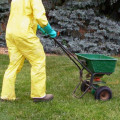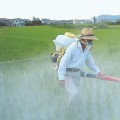Unfortunately, that has led to a lot of talk about eliminating many home maintenance services, such as pest control in Houston. People go on YouTube and see these crazy myths about cheap and do-it-yourself pest prevention, like burning an ant pile with fire, yes, FIRE. Let us be the first to warn you: DO NOT try to set fire to your ants with gas and a lighter. It will be an expensive call to the fire department.
Instead, adjust it elsewhere in your budget if you can and consider the savings that essential services such as control can offer you. Texas has a well-deserved reputation of being a tough state where everything is bigger. In Houston, that also applies to our bugs, specifically cockroaches and mosquitoes. Add to that a large population of spiders and other creepy trackers and you'll see why in Texas you have to be tough.
Insects range from harmless nuisances to those that can be potentially lethal to humans or animals. Regular preventive treatments from a reputable pest control provider in Houston are the best way to mitigate insect encounters. Let's take a quick look at the most common insects we found and killed as the top pest control company in the Houston area. Fear of spiders or arachnophobia is a very common phobia all over the world.
It can be safely said that if you have a serious fear of spiders, pest control is not your ideal career. The surprising fact is that spiders are more useful than harmful. They play an important role in natural pest control: they eat cockroaches, mosquitoes and flies, to name a few. That said, there are also some varieties of spiders that can be very harmful to us.
Spiders such as brown recluse and black widow are the most common varieties in Houston. Its poison contains extraordinarily strong toxins that can cause serious health problems and even death. Texas is home to many species of bees, but the most dominant in Houston, as well as in the state, are honey bees and bumblebees. While both species are quite docile to humans, if you get stung it can be moderately painful.
However, if you are allergic, it can be much more serious, as it can cause things like anaphylactic shock. The good news is that bees usually sting only as a last resort of defense, especially honey bees that may die in the process. Pain from a bee sting usually goes away after about an hour. It should also be noted that honey bees are incredibly important for the ecosystem.
It is better to divert them as little as possible rather than eradicate them. Wasps, on the other hand, especially the yellow jacket variety, are frankly vicious and aggressive. A yellow jacket will not only follow the old rule of “don't bother me, I won't bother you”. They will come to you with unrepentant aggression and, unlike bees, they will sting you as many times as possible because they can.
Most other species of wasps also tend to be aggressive, but not to the malicious level that is yellow wasps. Their sting is more painful than that of bees, but again, unless you are allergic, it does not pose much of a threat. But you learn to avoid them, my God, do you learn?. There are more than 200 species of ants that are native to Texas, and Houston is home to a dozen of them.
Ants are everywhere in Texas, with more than 200 species native to the state, and Houston has its fair share of biting creatures. These include significant notable populations of red ants, carpenter ants, acrobat ants and, as of 2002, “crazy raspberry ants”. Yes, mad ants, their name indicates their erratic behavior and functioning, where most ants are very structured and organized. You may not recognize the name of pharaoh ants, as most Houstonians call them “sugar ants.
The most dominant species in Houston are the well-known red ants, if you've ever accidentally stepped on a pile you know. These ants are also angry little bugs that are quite aggressive and, because of their crowd, can be very painful. The good news is that ants are more painful and annoying than dangerous, unless you're allergic. Many people who are not familiar with Houston would swear that we have mosquitoes the size of sparrows when they visit us.
However, there is no need to inflate the ego of mosquitoes in Houston, the fact is that they just literally stink. Blood, to be specific, is what they feed on. Therefore, mosquitoes do not bite or bite us even though we call them bites. Mosquitoes survive on human blood and are the carriers of some of the deadliest diseases in history.
West Nile, dengue, malaria and many more, it's no surprise that pest control companies spend 90% of their time eradicating them. Mosquitoes also pose a big threat to our pets spreading heartworm to cats and dogs. While cockroaches are disgusting and ants can bite, mosquitoes spread misery like no other. They are relentless, they travel in swarms, and dozens will feed on you at once if they feel brave.
Unfortunately, due to our climate, mosquitoes thrive here, so pest control companies in Houston have their hands full year round. Anyone who has spent a long time in Houston understands that insects are inevitable here due to foliage and moisture levels. You can move out of the area or invest in quality Champions League pest control. Although mistakes have a bad reputation, many serve a beneficial purpose.
Ladybugs and other beetles feed on smaller insects that would otherwise destroy your rose or vegetable garden. You may not want them in your house, but it's safe to let these guys be. Many homeowners wonder if it is safe to stay in the house or go out for a while after pest control treatment. Fortunately, you don't need to leave home because of pest control.
Today's pest control companies have abandoned toxic chemicals and switched to safe, natural alternatives to keep their home pest-free. Professional Pest Control Technicians Do More Than Spraying for Insects. Identify the specific type of pest you're dealing with, locate the source of the infestation, and eliminate pests. After that, they will work with you to prevent future infestations by providing you with tips for home maintenance.
At Stomp Pest Control, we always do our best to make it easier to find all the information you are looking for. We have been helping our residents and businesses in and around Raleigh for over 15 years with their pest control needs, including mosquito and termite control. We have compiled the most common questions we have received and answered them for you. The following is a list of questions and answers available to you.
If you don't find the answer you're looking for, don't hesitate to contact us at 919-231-3292 or use our contact form. You pay a lot of money to have a pest control treatment and it can be daunting to keep seeing bugs after you've sprayed your home or business. According to professional pest experts, you should remove all available attractants in your home if you want your pest problems solved. If chemicals become necessary, the pest control professional will use more environmentally friendly products to eliminate pests.
As research and technology progresses, technicians gain more training to stay up to date on pest management practices with specific pests. The company is known as pest control experts by the City of Thomasville, NC, where they provide exceptional pest control services performed by professional, licensed and highly trained pest technicians. With this, you need to have another pest control, but make sure that the exterminators in Thomasville, NC do it for better results. Because all scenarios are different, there may be additional ways to prepare your home for pest control services.
However, if it is already a serious infestation, the Thomasville area exterminators of Go-Forth Pest Control should be called. Before applying any treatment, Stomp Pest Control inspects and identifies potential problem areas that may need attention, but it's your job to make sure these areas get the alteration they need. Rain and light snow can optimize pest control services, as pests are often extracted from the ground. Learning about the pests you have and the options available to control specific pests is the first step.
The cost of pest control will vary depending on your location, the pest in question, and the severity of the infestation. . .







